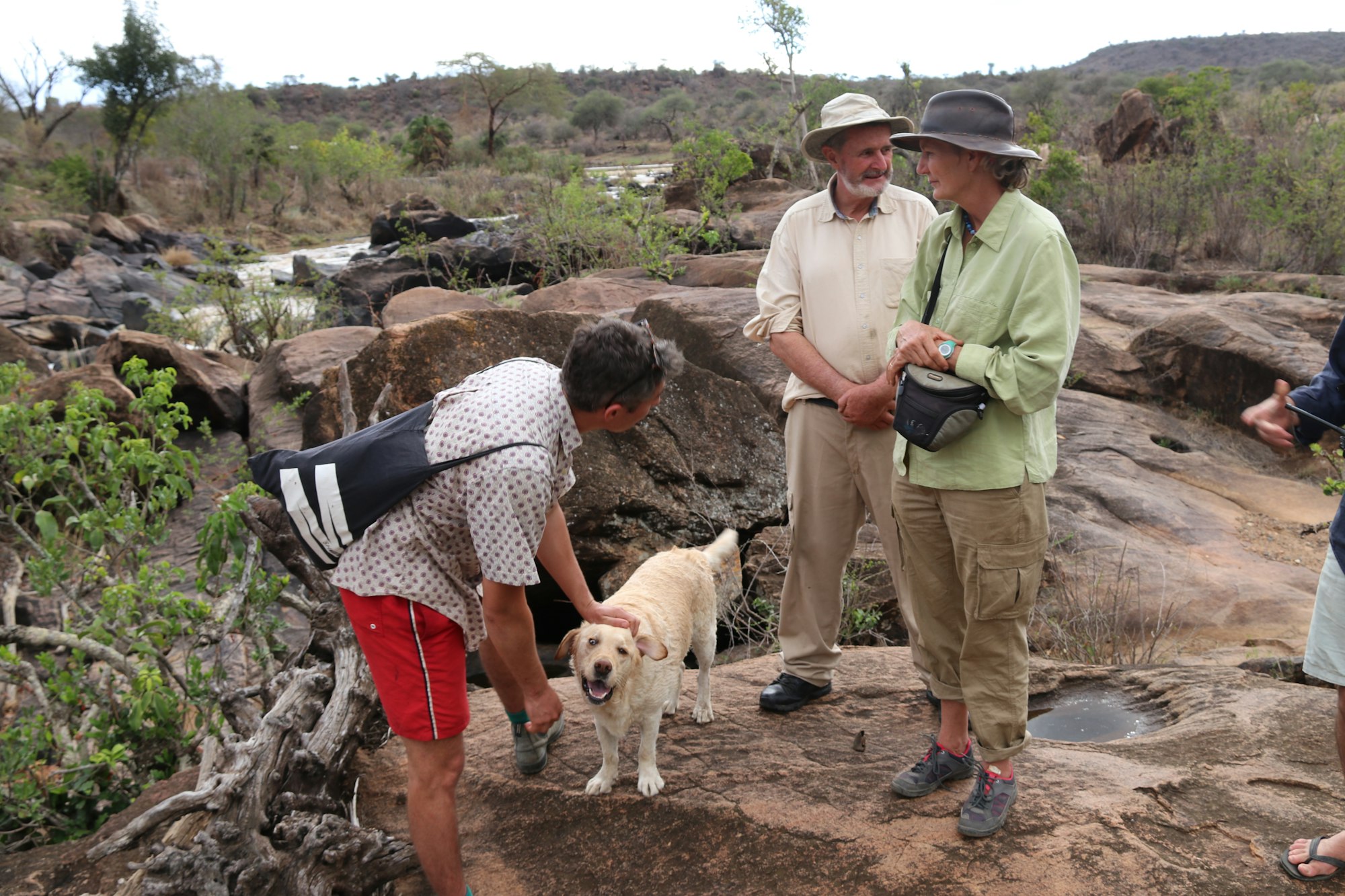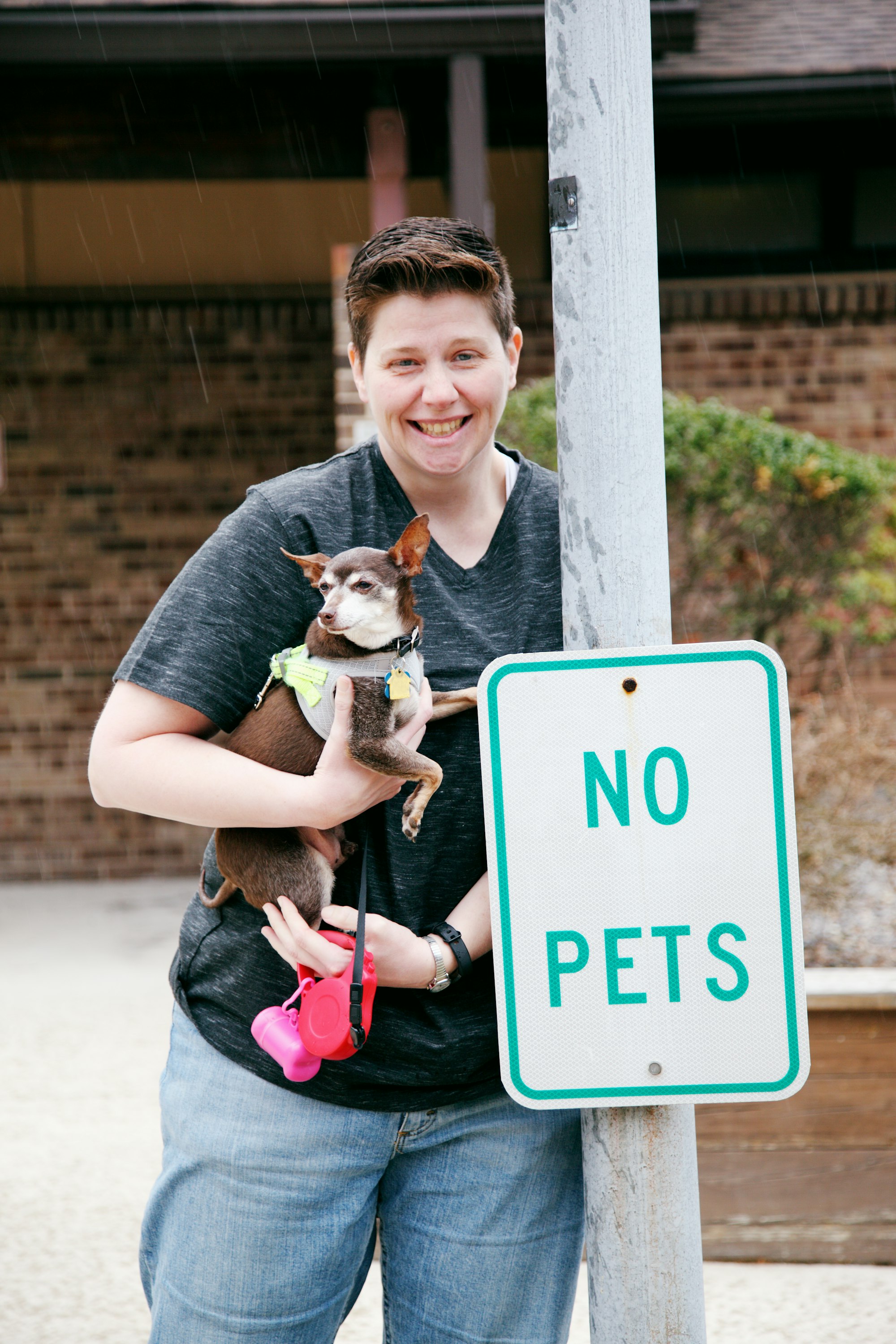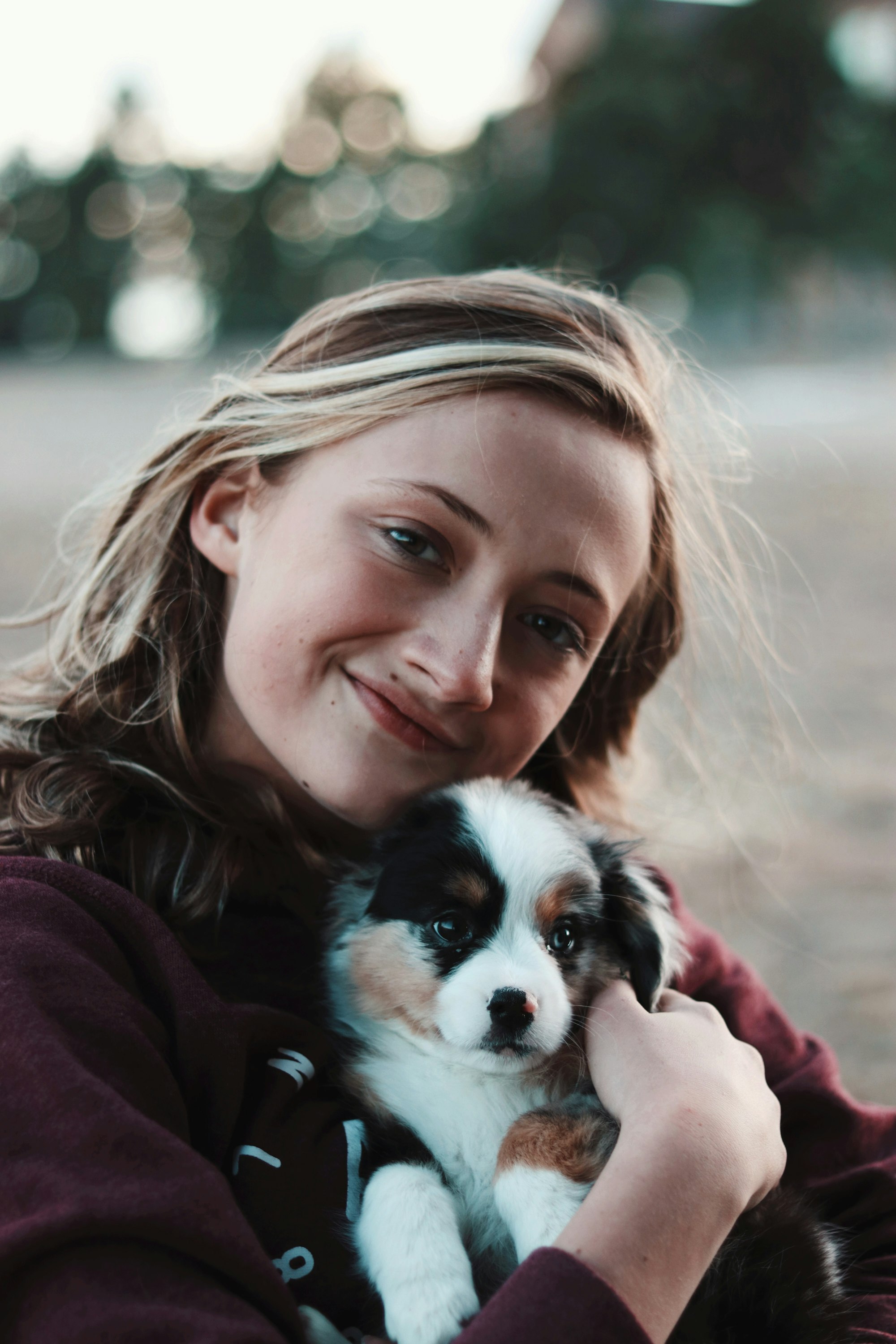The art of canine camaraderie isn't always innate. Just as some humans find it easier to mingle than others, our furry friends too have their own comfort zones. Socializing your dog with others, whether they're an excitable Bernedoodle or a stoic American Mastiff, can be straightforward and enjoyable with the right steps. Here's your guide to ensuring your dog’s next encounter with their four-legged brethren is smooth sailing.
The Importance of Dog Socialization
Just as humans thrive with good company, dogs too crave interaction. Proper socialization isn't merely about play; it molds behavior, reduces anxiety, and equips your dog with the confidence to handle various situations. It's the cornerstone for a well-adjusted dog.

Puppy’s Prime Time
While it's never truly too late to socialize a dog, there's a golden window for puppies. This period, often between 3 to 14 weeks, is when pups are most receptive to new experiences. Navigating this window well can set the stage for easier socialization in the future.
Starting Ground: Your Home
Before you embark on outdoor adventures, start within the confines of your home. Familiar surroundings provide a sense of security, making initial encounters less daunting. If you have acquaintances with well-socialized dogs, consider arranging a controlled meet-and-greet.
Steady and Slow: Gradual Introduction
Avoid diving straight into the bustling environment of a dog park. Instead, opt for one-on-one interactions in controlled spaces. As your pet's confidence builds, you can slowly introduce them to larger groups.
Deciphering Dog Body Language
A wagging tail, perked ears, or a lowered head - dogs have their own rich language. To ensure successful socialization, it's crucial to understand these non-verbal cues. Recognizing signs of stress or excitement can guide your approach, allowing timely interventions if needed.
Structured Socialization
Dog socialization classes can be a game-changer. Not only do they provide controlled environments, but professional trainers can also offer guidance. Such classes are beneficial for both novice and experienced dog owners.
Neutral Grounds for Meet-Ups
Territorial instincts can sometimes interfere with smooth introductions. When setting up doggy playdates, opt for neutral territories like unfamiliar parks or open spaces. Initial interactions should always be on a leash to ensure safety and control.
A Quick Digression
While we're on the topic of canine welfare, it's crucial to be informed about their health needs too. For instance, can dogs eat onions? No, they're toxic for our furry friends! And those ever-curious why do dogs have whiskers? These tactile hairs, or vibrissae, play an essential role in a dog's sense of touch.
Facing Challenges
It's essential to recognize that not all dogs will gel well instantly. If two dogs don’t seem to get along, don't force the situation. Taking a break and trying again later, or seeking advice from experts, might be the best course of action.
Ensuring Long-Term Success
Even after mastering the initial steps of dog socialization, it's essential to recognize that the process is continuous. Just as humans evolve in their social behaviors and preferences, dogs too grow and change. Hence, it's vital to adapt and revisit your socialization techniques over time.
Regular Refreshers
Even the most social dog can benefit from periodic reintroductions to group settings. Make it a habit to expose your dog to different environments, whether it's a stroll through a bustling neighborhood, a visit to the pet store, or a weekend getaway in nature.
Respect Their Individuality
Every dog is unique. Some might revel in the excitement of a busy dog park, while others might prefer the company of a select few canine pals. It's crucial to understand and respect these preferences, adjusting your approach accordingly.
Playdates and Activities
Organize regular playdates with other dogs. This not only reinforces their socialization skills but also provides a much-needed avenue for exercise and mental stimulation. Incorporating activities, like fetch or tug-of-war, can further foster positive interactions among dogs.
Addressing Setbacks
It's not uncommon for previously social dogs to suddenly exhibit signs of anxiety or aggression around others. In such cases, it's essential to reassess the situation. Factors like health issues, traumatic incidents, or changes in the home environment can influence behavior. Consulting with a vet or canine behaviorist can offer valuable insights.

Continuing Education
As with any other aspect of dog care, staying informed is key. Join local dog clubs, participate in online canine communities, and attend workshops. The more you learn, the better equipped you'll be to navigate the dynamic world of dog socialization.
A Little Fun Fact
By the way, while we're exploring the vast universe of dog knowledge, have you ever heard about the Bernedoodle? This delightful mix between a Bernese Mountain Dog and a Poodle is known for its playful nature and intelligence, making it a fantastic candidate for socialization endeavors!
A Deep Dive into Canine Relationships
The relationships dogs forge aren't merely fleeting moments at the park. Much like us, they form bonds that can last a lifetime. Nurturing these connections provides an enriching environment for your pet, cementing the foundation for their well-being and happiness.
The Importance of Consistency
To sustain the friendships your dog forms, regularity is key. Think about your own friendships; seeing a friend now and then versus frequent meet-ups can make a significant difference. Similarly, organizing consistent playdates with the same canine companions can solidify the bonds your dog builds.
Expanding Social Circles
While it's beneficial to have regular pals for your dog, introducing them to new furry friends occasionally can be just as advantageous. This not only offers variety but also challenges your dog to adapt and refine their social skills.
Celebrating Milestones
Remember those birthday parties when you were a kid? Dogs, too, can revel in such joyous occasions. Celebrating milestones, whether it's your dog's birthday or their "gotcha day," with their canine buddies can be a delightful experience. These gatherings not only offer a chance to socialize but also create memorable moments.
Embracing Seasonal Activities
Different seasons offer varied experiences for your dog. Snowy winters can mean fun snowball fetch games, while summers might bring about beach outings. Sharing these moments with their canine companions allows for shared experiences, further deepening their relationships.
Sensitivity to Aging and Health
As dogs age, their social preferences and capabilities might evolve. An older dog might not have the same energy levels as their younger self. Recognizing and accommodating these changes ensures that social interactions remain positive and fulfilling, even in their golden years.
The Digital Pawprint
In our age of technology, even our four-legged friends aren't left behind. There are numerous apps and platforms dedicated to dog owners, facilitating playdate arrangements or sharing insights. Engaging in these platforms can provide additional avenues for your dog to socialize and for you to connect with like-minded pet parents.
Socialization Beyond Doggy Peers
Beyond the realm of dog-to-dog interactions lies a vast landscape of socialization opportunities. Dogs don't merely engage with their kind; they interact with a diverse world full of varied stimuli and creatures. Enhancing their experiences beyond the canine circle can lead to a more rounded, adaptable, and confident pet.
Engaging with Other Animals
Dogs often find themselves amidst other animals, be it cats, birds, or even farm animals. Introducing your dog to these creatures in a controlled and positive manner can foster mutual respect and curiosity. Whether it's a curious sniff with a household cat or a calm encounter with horses during a countryside walk, these interactions enrich their understanding of the world.
Navigating Human Social Settings
From bustling city streets to serene cafe patios, our urban environments present a myriad of socialization opportunities. Dogs can benefit immensely from learning how to navigate these spaces calmly. Take your dog to varied venues, exposing them gradually to different sounds, sights, and human interactions. This not only aids in their adaptability but also ensures they're comfortable in diverse settings.

Participating in Dog Sports
Dog sports, from agility courses to herding trials, offer dual benefits. While they cater to a dog's physical needs, they also present unique socialization scenarios. Participating in such activities can expose your dog to new challenges, dogs, and people, making it a comprehensive socialization package.
Addressing Unique Breeds and Their Needs
Certain breeds, like Guardian dog breeds, come with unique behavioral traits. Recognizing and addressing these specific needs can be crucial. For instance, a guardian breed might have a more pronounced protective instinct. Tailoring their socialization to suit these instincts can lead to more productive outcomes.
Vacation and Travel
Taking your dog on vacations or trips introduces them to entirely new environments and experiences. Whether it's a mountain hike or a seaside retreat, each setting offers unique stimuli. Preparing your dog for these adventures, both in terms of physical readiness and social adaptability, can make your travels enjoyable for both of you.
Curbing Misconceptions and Myths
Part of a holistic approach to dog socialization involves debunking myths. For instance, while the American Mastiff might look intimidating due to its size, it's often a gentle and affectionate breed. Understanding the true nature of breeds and individual dogs can pave the way for better, prejudice-free socialization.
Enhancing Dog Socialization with FI Dog Collars
When we think about enriching our dogs' lives through socialization, we often focus on the behavioral aspects. But, what if there was a tool that could elevate this experience, making it safer, more controlled, and integrated with technology? Enter the FI Dog Collar - a game-changer in the realm of dog care and socialization.
Safeguarding Exploration with FI
One of the potential challenges of introducing your dog to other animals is the unpredictability. A dog's sudden chase instinct could be triggered, especially if a cat decides to bolt or a bird takes sudden flight. With the FI Dog Collar’s real-time GPS tracking, even if your dog gives into their chase instinct, you can always track their exact location, ensuring a quick and safe reunion.
Enhancing Urban Adventures
Busy urban environments can sometimes be overwhelming. The hustle-bustle, coupled with distractions, can lead a dog astray. But with FI's geofencing feature, you can set up virtual boundaries. If your furry companion decides to take an unexpected detour during your café visit, you'll instantly receive an alert.
Sports, Made Safer
While dog sports arenas are often fenced and controlled, there's always a slight chance of a dog getting too excited and wandering off. FI Dog Collar acts as an extra safety layer, ensuring you always have an eye on your pet, even if they're momentarily out of sight.
Understanding Unique Breed Needs
Breeds like Guardian dog breeds might have specific tendencies or behaviors. For instance, they might be more prone to guarding and patrolling vast territories. The activity tracking feature of the FI Dog Collar can help you understand your dog's movement patterns, ensuring they're safe while they embrace their natural instincts.
Seamless Travels with FI
New environments can sometimes disorient dogs, leading them to wander off. Whether you're camping in the woods or exploring a new city, the FI Dog Collar ensures you always have real-time data on your dog's whereabouts, making trips stress-free and enjoyable for both of you.
Debunking Myths through Data
The activity tracking in FI Dog Collars can also give insights into a dog's behavior. For instance, while an American Mastiff might be perceived as a less active breed, you might find that your Mastiff is quite the energetic explorer. With tangible data, you can counter misconceptions with facts.
Conclusion
Socializing your dog with other dogs is not merely a task, but a crucial aspect of its overall development and well-being. Through the steps outlined, owners can ensure that their canine companions are well-adjusted, confident, and able to interact harmoniously with their peers. It's essential to approach the process with patience, consistency, and understanding, recognizing that each dog is unique and may require tailored strategies. By taking the time to properly socialize your dog, you not only contribute to your pet's happiness but also foster a community where dogs and their owners can interact in positive and enriching ways.

